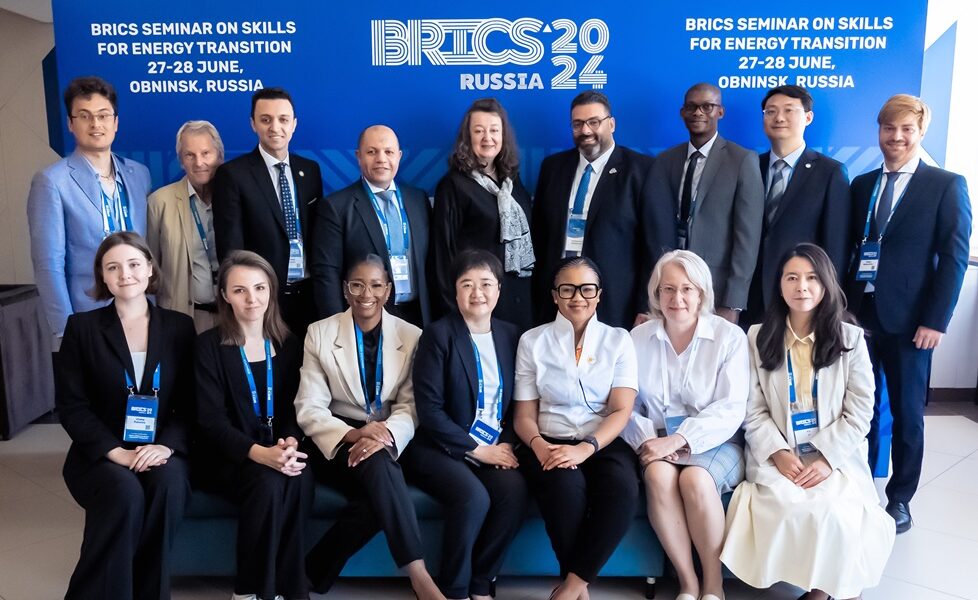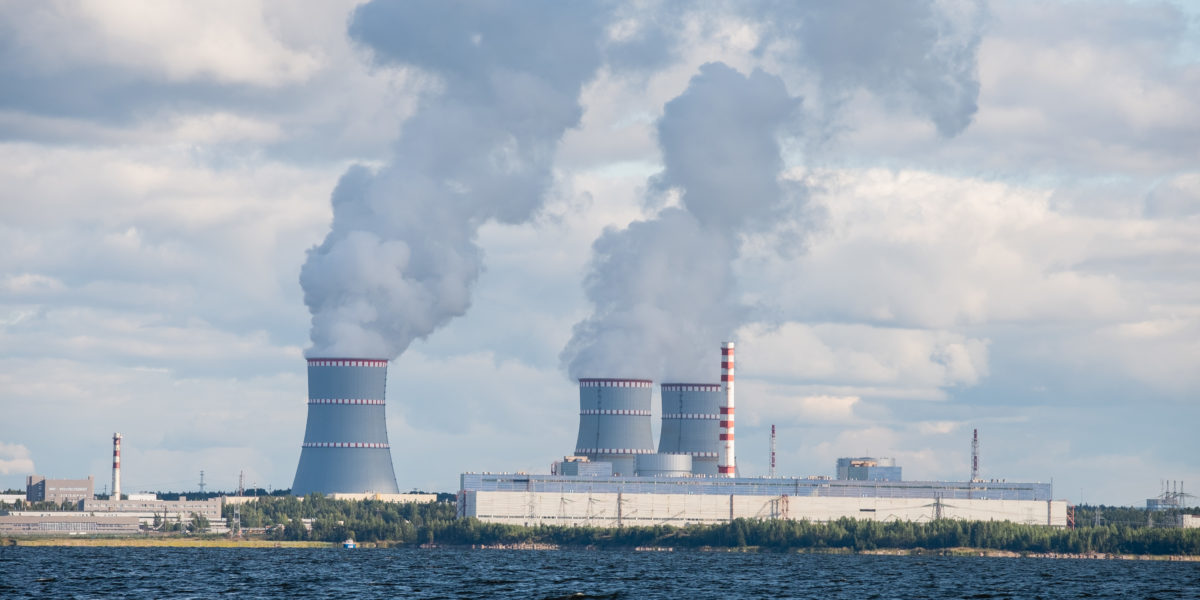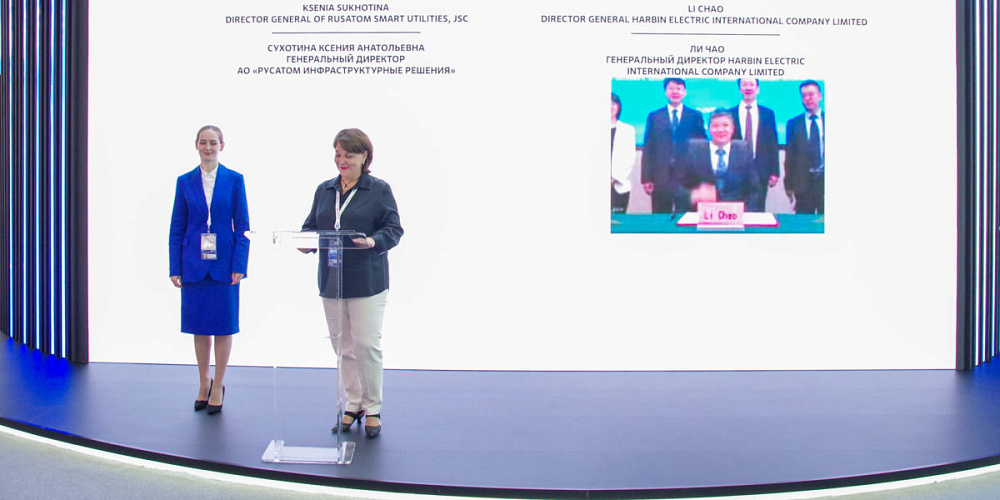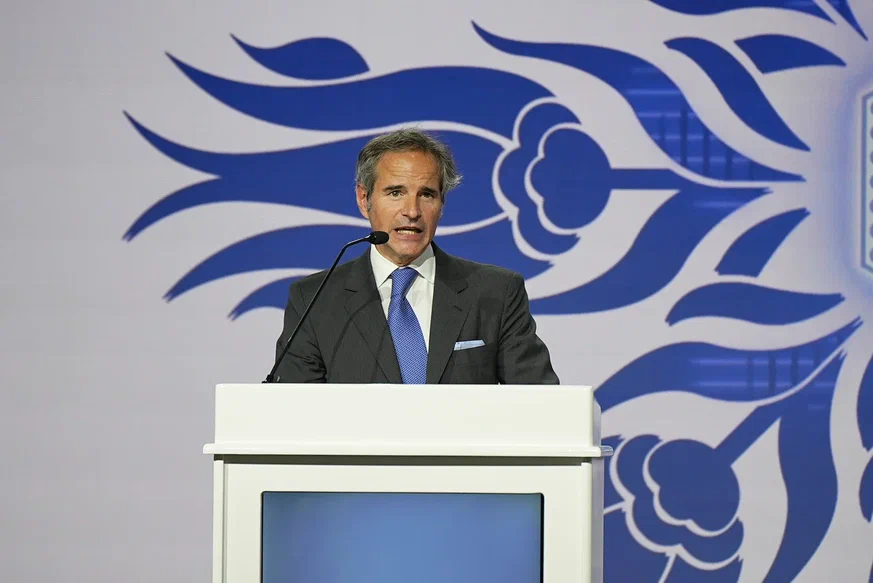Obninsk hosted a seminar on the BRICS countries human resource potencies in energy transition. It was organized with the support of the Russian Ministry of Energy and Rosatom. Official delegations from Russia, South Africa, the UAE, Brazil, China and Egypt, as well as Russian experts from the BRICS Energy Research Platform took part in the meeting.
The general purpose of the seminar was to develop specific recommendations based on the results of the first BRICS countries report on labor market development in the energy industry, prepared in 2023. State Secretary - Deputy Minister of Energy of the Russian Federation Anastasia Bondarenko addressed the seminar participants with a welcoming speech. “It is obvious that the BRICS countries have different energy balances and different access levels to energy resources. At this point, the staff training needs for the energy industry are different in each country. At the same time, the BRICS countries have many similar goals and difficulties in the labor market development and staff training areas, and this opens up the potential of our cooperation extension. I am confident that together we can achieve significant success in any direction,” she noted.
One of the keynotes of the seminar was a discussion of human resources development in the BRICS countries in the context of The Energy Transition Research compiled in 2023 under the chairmanship of South Africa.
Key conclusions of the research were presented by Project Manager of the South African National Energy Development Institute (SANEDI) Nelisiwe Nhlapo. According to the research, the BRICS countries are world leaders in the workers quantity in all energy sectors. They are 50% of all employees in the renewable energy sector (RES) and 80% of employees in the coal sector. At the same time, the main challenges that the BRICS countries face today are the aging of working staff in the traditional energy sector, difficulties in transferring experience to the younger generation, the need to develop specialized skills among young people, the importance of uniting countries in the scientific research, standardizing qualifications, and disseminating exchange programs for students and teachers, and also creating mutual programs in energy education.
BRICS delegations also presented their national strategies for skills development in the energy sector. The South African delegation dwelled on the experience of the sectoral education system: more than 20 educational institutions of various industrial sectors have been created in the country in order to develop specific hard skills as well as “soft” skills. The UAE delegation outlined the main areas of education that are in demand in the context of the energy transition. This includes expertise in renewable energy, energy efficiency, engineering and design, digital skills, project management, regulatory frameworks, research and development, public education, and specialized technical skills.
The Brazilian delegation spoke about the experience of specialized targeted student courses, graduates and professionals in the fuel and energy sector on renewable energy sources, biofuels, labor safety, environmental protection and others. The Egyptian delegation presented the Ministry of Petroleum and Mineral Resources experience programs for mid-level and senior managers in the energy sector, a leadership development program and an energy efficiency training program.
The experience of the Russian nuclear industry was presented by Gulnara Bikkulova, Deputy General Director - Director of the International Initiatives and Partnerships Block of the Rosatom Corporate Academy. She presented a snapshot of the Russian energy sector with 2.6 million working staff. The average age of employees is 42 years, women account for 26% of total personnel. Gulnara Bikkulova noted that Rosatom is doing a lot of work within the human resources development ecosystem to improve these indicators. It includes involving the youth into the industry by cooperating with 250 Rosatom schools and 21 partner universities, implementing huge projects to popularize engineering and technical professions (hackathons, competitions, championships of professional excellence). The skills of current employees are being improved by training staff programs at The Rosatom Corporate Academy and The Technical Academy as well as using digital platform RECORD Mobile. The special attention is paid to issues of gender balance: The Corporate Academy has launched the Invisible Force women’s leadership program and is assisting schools in teaching technical disciplines to female students.
Reference
Obninsk is the first science city in our country and a large scientific and technical cluster. The world's first nuclear power plant, launched on June 26, 1954, the Institute of Physics and Energy named after A.I. Leipunsky, the Obninsk Institute of Atomic Energy (a branch of the National Research Nuclear University MEPhI) and a number of other landmark research centers are all located there. The city is also home to the main campus of the Rosatom Technical Academy, a modern multidisciplinary training center for personnel in the nuclear industry.
The world's first nuclear power plant (Obninsk NPP) gave rise to the era of peaceful use of atomic energy. The station's reactor operated efficiently and safely for 48 years. On April 29, 2002, the station's reactor was shut down and work began to decommission it. In September 2002, the last fuel assembly was unloaded from the reactor. Since 2009, an industry memorial complex has been operating on the premises of the First NPP, which is annually visited by more than 4 thousand people (schoolchildren, students, specialists from different countries, as well as ordinary people interested in nuclear energy).
Russia is actively developing cooperation with friendly states. Despite external restrictions, the domestic economy is increasing its export potential, supplying goods, services and raw materials around the world. The implementation of large foreign energy projects continues. Rosatom and its divisions take an active part in this work.





